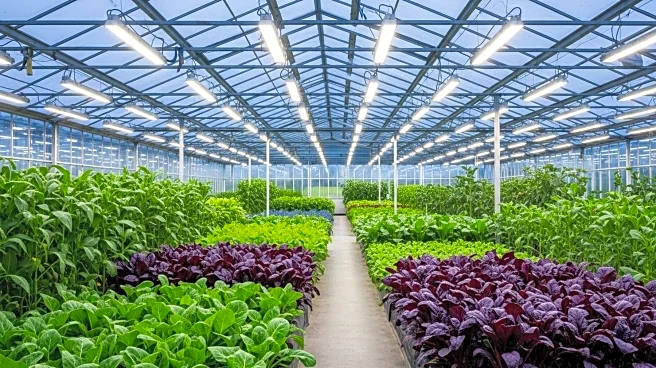What's Happening?
UbiQD, a leader in quantum dot materials, has announced the results of a USDA-funded study conducted at UC Davis, demonstrating the effectiveness of quantum dot-laminated glass in enhancing plant growth and energy efficiency in controlled-environment agriculture. The study marks the first deployment of quantum dot-integrated structural glass in agriculture, showing significant improvements in plant biomass, leaf area, root length, and light-use efficiency. The findings suggest that spectrum-optimized glass can enable high-yield, year-round production, particularly in colder climates and energy-constrained regions.
Why It's Important?
The study provides compelling evidence for the use of quantum dot technology in agriculture, offering a sustainable solution to global food production challenges. By enhancing plant growth and nutrient uptake without additional energy inputs, quantum dot glass presents a promising pathway for climate-smart greenhouse envelopes. This technology addresses the pressures of rising demand, land and water scarcity, and climate volatility, providing a tool for sustainable intensification in agriculture.
What's Next?
The successful deployment of quantum dot glass in agriculture opens new opportunities for integrating light-optimizing technologies into food production systems. As the world races toward a population of 10 billion by 2050, growers need solutions that maximize yield while minimizing resource use. The study's results support the broader vision for integrating photonics with sustainable food and energy strategies, paving the way for scalable, climate-resilient agriculture.
Beyond the Headlines
The integration of quantum dot technology in agriculture represents a significant advancement in sustainable food production. By optimizing light use and enhancing plant growth, this technology offers a solution to the environmental impact of traditional farming methods. The study's findings highlight the potential for quantum dot glass to contribute to global sustainability goals, providing a promising approach to securing food production while minimizing ecological impact.










